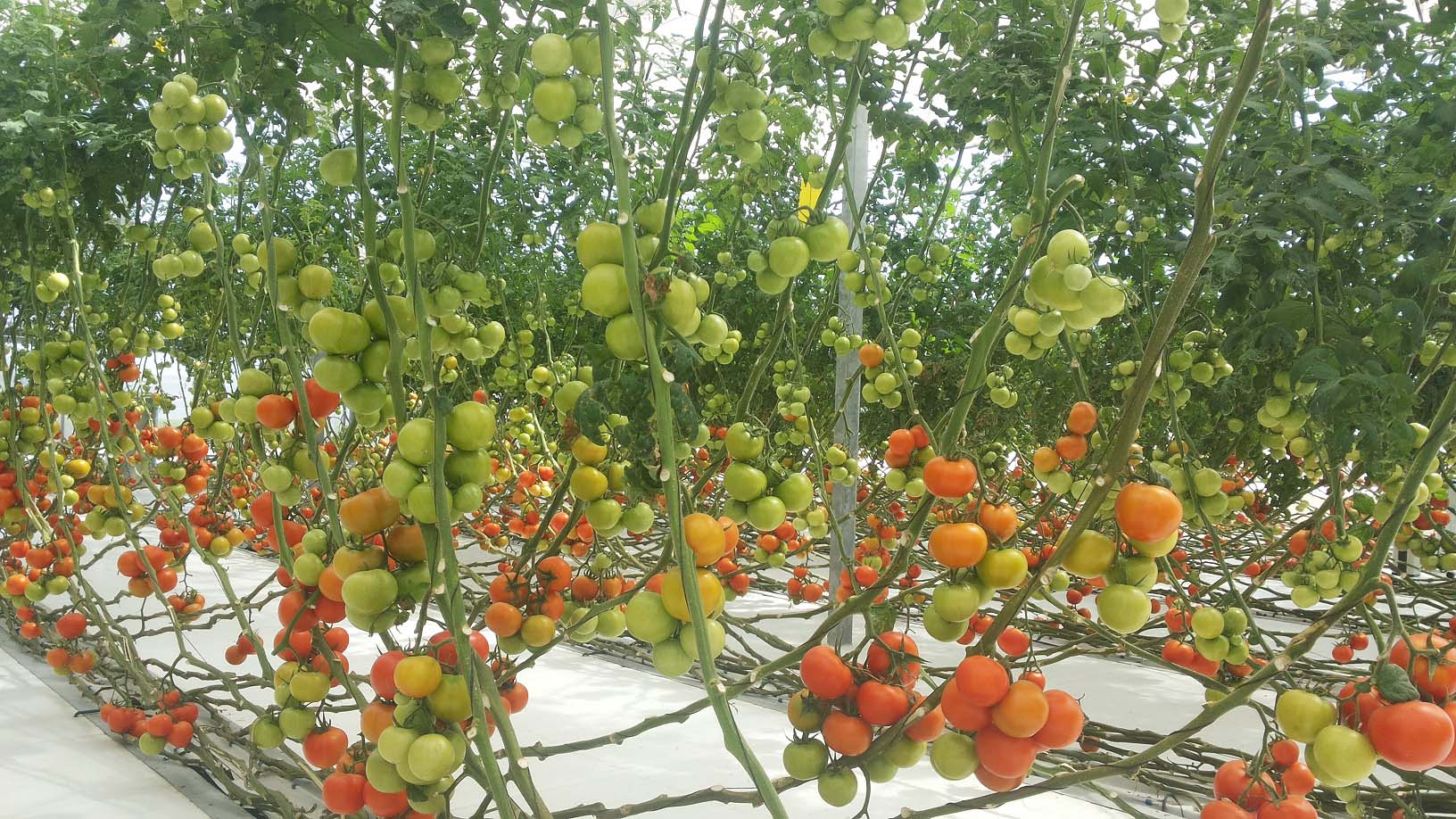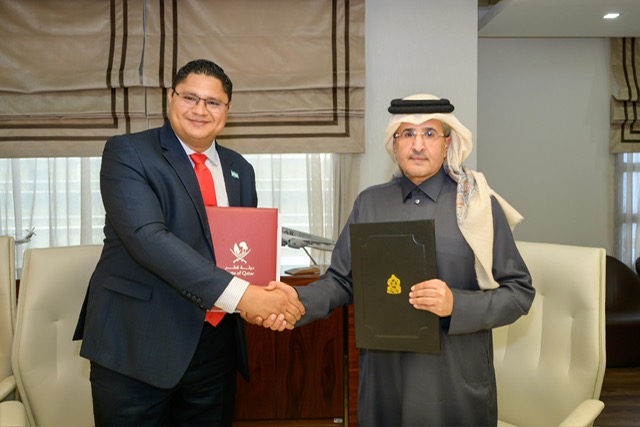
Qatar is aiming to grow up to 70 percent of its own vegetables by 2023 thanks to the launch of a new farming system that needs no soil and which recycles irrigation water, according to state investment company Hassad Food.
For the last two years, Qatar’s food and livestock investor has been piloting a hydroponics project to help make the arid state more self-sufficient in fresh produce.
In partnership with Oasis Agrotechnology, a consortium led by Spain’s Primalor Group, Hassad Food set up Zulal Oasis on a farm in Al Shahaniyah, west of Doha and trialled the project by growing tomatoes in greenhouses, which have been adapted to the dry and hot local weather conditions.

The greenhouses use Primaflor’s New Growing System technology, which has no soil or substrate materials and has a Dry Air Cooling System that doesn’t use water and provides no moisture.
It is “the most advanced hydroponic system in the world,” Hassad Food said in a statement.
The efficiency of the new system will enable Qatar to become between 50 and 70 percent self-sufficient in the production of vegetables by 2023, a Hassad Food spokesperson told Doha News.
As a desert nation with a growing population, Qatar imports the vast majority of its food. However, this leaves it vulnerable to fluctuations in global prices and supply disruption.
Authorities have been trying to tackle the state’s food security through a number of projects aimed at boosting production at home and abroad, to help Qatar become more self-sufficient.
Water-less system
Hassad Food’s Chairman and Managing Director Nasser Mohamed Al Hajri said the pilot project had been “a great success” and adapted well to Qatar’s harsh growing conditions.
“It also exceeded expectations regarding the yield and quality, producing more than 37 kilograms per sqm of highest quality European Standard,” he said.
In addition to growing vegetables, the system can also be used for fruit and flower production.
Describing the technology as “a long-term sustainable production model,” Al Hajri said it could produce high-grade crops throughout the year, even during the scorching desert summers.

The dry cooling technology is described as an automated smart control system that controls the temperature inside the greenhouses, regardless of the weather outside, eliminating many of the climate challenges farmers in this region face such as high humidity, heat and a lack of groundwater.
Hassad Food said the Zulal Oasis system is cost-effective for farmers, as production costs would be lower than importing the same quality of fresh produce.
And it enables farmers to diversify the crops they grow according to local demand.

In addition to the greenhouses, crops can also be planted outdoors using the hydroponic technology, although the growing season is limited to the cooler months.
Produce which could grow well under cover includes peppers (capsicums), strawberries, herbs and flowers in addition to tomatoes.
Broccoli, cauliflower, cabbage, corn, courgette (zucchini), mangoes and citrus fruit would be suited to being grown using the system outdoors, Qatar Tribune said.
Investors
Hassad Food is in talks on sharing its technology with investors in Saudi Arabia and Oman, Bloomberg quotes Zulal Oasis Director Hamad Hadi Al Hajri as saying.
And the technology is now being licensed for local farmers to use, with an open day planned at the research site on Thursday.
The system is expected to be used on up to 1,000 hectares of land by 2023. The Ministry of Economy and Commerce will start floating tenders for the first 400 hectares of land by the end of this year, with the remainder to follow by an undisclosed date, Qatar Tribune reports.

Qatar has already increase the amount of food grown at home, particularly dates, cucumbers and green peppers, in part due to an expansion in cultivated land since 2009.
However, the largest increase by far has been in fodder for livestock, which coincided with a dramatic jump in red meat and dairy product production, according to the latest agricultural report from the Ministry of Development Planning and Statistics (MDPS) released in May this year.
A subsidiary of sovereign wealth fund Qatar Investment Authority (QIA), Hassad Food has been making investments and buying up land abroad to help address the state’s food production shortfall.
It also has the Roza Hassad flower production facilities in Al Shehaniya, which were opened by the Emir in 2012 and use hydroponics to grow up to 20,000 flowers daily in 100 varieties.
Thoughts?







